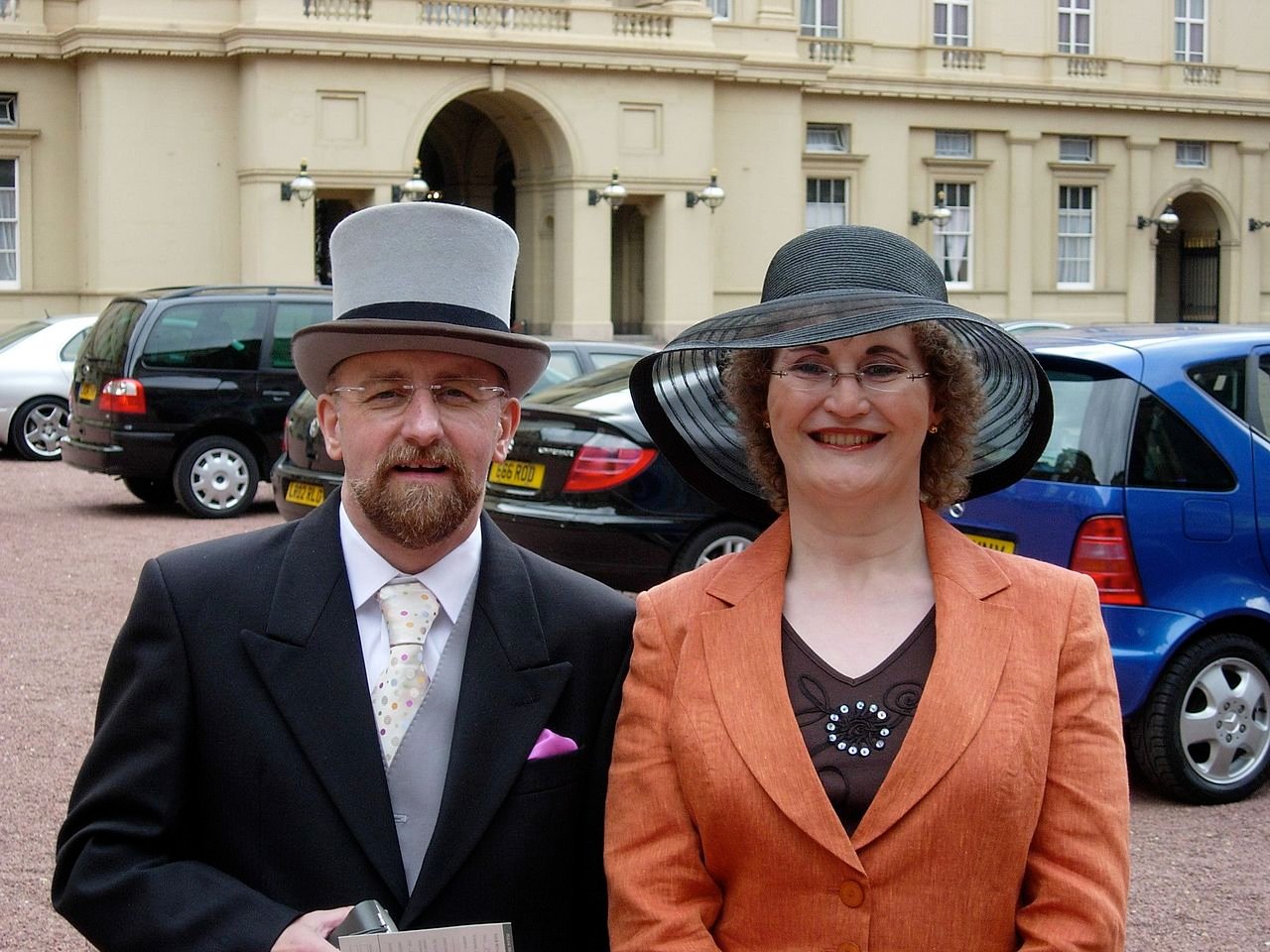Charting the long history of an elusive trans-identifying-female, Stephen Whittle’s efforts to whittle away women’s rights, from 1975 to 2019.
This article was first published as part of The Usual Suspects.
Stephen Whittle, professor of Equalities Law in the School of Law at Manchester Metropolitan University, seems to have fingers in every single trans pie in the UK. There’s some onomastic determinism at play, as Whittle has spent a lifetime strategically whittling away at women’s rights.
There’s plenty of information out there about Professor Whittle, but everything I can find is very carefully curated; I have referred to the Wiki page for dates and facts as I’m quite sure a close eye is kept on it. Whittle doesn’t tweet while drunk, give revealing interviews, or allow family members to speak off the cuff, so there’s very little out there to tell us anything about the person behind the name.
1955: Stephanie Whittle is born in Altrincham Cottage Hospital, Manchester. Her mother already has two children and goes on to have two more. The family live in Wythenshawe, which at the time was said to be the largest council estate in Europe. Wiki serves up the usual trans childhood narrative, which is reiterated throughout Whittle’s media appearances and interviews. This interview with the Australian Broadcasting Corporation is typical. “Christmas would come and I would be given a doll … and I wanted a cowboy suit. That was my big Christmas wish … why would you give me something that I would hate?”
Young Whittle’s mother “was concerned at how different he was from his sisters” and at the selective girls’ school which gave this clever child a scholarship, there were unrequited crushes on other girls. The extended interview in Will Self’s book Perfidious Man suggests that the experience of childhood and adolescence were troubled. “… parents were problematic. His proud, military father didn’t want to engage with such embarrassing issues, while his mother wouldn’t stop crying whenever Stephen tried to explain his predicament.”
1974: an early adopter of activism, teenage Whittle sets up the Manchester Lesbian Collective. That same year, after attending a Women’s Liberation Conference in Edinburgh, Whittle came out as a trans man. Wouldn’t it be fascinating to know more about the Manchester Lesbian Collective and that Women’s Liberation Conference, and the events that led up to that coming out?
1975: Whittle starts taking testosterone and joins the Manchester TV/TS group, now known as Northern Concord, which was set up that same year by two TIMs.
1977: Whittle goes to Sussex to study Geography. The account in Perfidious Man suggests that by 1978 there had been major body modifications including a double mastectomy and hysterectomy.
1978: Whittle gets together with Sarah Rutherford; they married in 2005. Rutherford is also employed by MMU as a senior lecturer in nursing. Yes, nursing, that profession that brings its members into constant contact with the messy reality of the sexed human body; or in Rutherford’s case, perhaps it would be more accurate to say the messy reality of the human mind, as she trained as a mental health nurse. However, Rutherford’s twitter account demonstrates that she is a fully paid-up TRA who retweets Pink News and Ruth Hunt.
1980: Whittle joins forces with one Lewen Tugwell to set up the Self Help Association for Transsexuals (SHAFT). The inadvertently comically named SHAFT (apparently Tugwell, whose name is also straight from a Carry On film, refused to believe that there was any possible reason to rethink the name) later became a registered charity called the Gender Trust. Tugwell, demonstrating exemplary humanity and empathy, had some years previously faked his own death in order to be able to live as “Judy Cousins”.
1981: Whittle graduates from Sussex with a Bachelors in Geography in 1981. There’s no detail about post-graduation working life in the otherwise extraordinarily detailed CV on the MMU web page. However, we can infer that newly graduated Whittle didn’t find it easy to settle into the world of work from a detail in an abstract from a conference in April 2015. “Throughout the 70s and 80s having lost numerous jobs because of being trans, he decided things would only change if trans people became lawyers” and to this end she decided to quality as a lawyer.
1985: Whittle starts a part-time LLB at what was then Manchester Polytechnic, now Manchester Metropolitan University.
1989: Whittle founds the UK’s FTM Network and coordinated it until November 2007. You may be able to see what’s on that FTM Network website – I can’t see anything. I assume that the next association she founded, Press For Change, took up far more time and attention, and it’s certainly been far more influential.
1990: Whittle finishes the LLB and starts teaching for the Open University at weekends. According to a 2016 interview with the Australian Broadcasting Corporation, “he soon got a job delivering computers to the law faculty at Manchester Metropolitan University and not long after was asked to teach criminal law.” Those were the days, when a computer delivery person could identify as a law lecturer, and end up on a university’s payroll.
1992: Whittle sets up Press for Change. As The Guardian tells it “Whittle, who “transitioned” nearly 40 years ago, was one of three trans men and three trans women who did an unusual thing in 1992: they went to meet Liberal Democrat MP Alex Carlile in Westminster. The unusual element was not the meeting but the fact that they travelled together – at the time, trans people never dared to because it increased the likelihood that they would be spotted and abused. These six wanted to start a campaign group; Carlile advised them to avoid the word “transsexual”. So, in Grandma Lee’s teashop opposite Big Ben, an anodyne name, Press for Change, was chosen.” One of the trans women was Christine Burns; three of the other four activists were Mark Rees, the actress Myka Scott and the airline pilot Krystyna Sheffield. Press for Change continues to be influential, but you’d never guess it from the website, which is still advertising forthcoming events for 2012.

1997: Whittle goes to the European Court of Human Rights in Strasbourg to be recognised as the father of the four children which Rutherford had conceived via insemination with donor sperm. As reported by The Independent on 23 April 1997, this was unsuccessful, but the story is worth looking at for several reasons. First, the Labour Party angle; Whittle is quoted as having said on the BBC R4 Today programme “They (Labour) have offered a pledge to take the matter on board … I’m sure we will see some change in the law.” When journalists from The Independent followed this up, “within hours of the decision a Labour spokeswoman told The Independent: “We have no plans to change the law in this area at all.” This came as a surprise to Whittle, as the Labour Party had supported a Private Member’s Bill on the subject in 1996, and had apparently given “private” assurances that it would be sympathetic to their claims.
Also worth noting is the ECHR’s reported acknowledgment, at that time, that there was “a lack of agreement between Convention signatories” on a ruling in 1996 by the European Court of Justice in Luxembourg, “which equated discrimination against transsexuals with sex discrimination”. The Strasbourg court therefore “accepted the Government’s view that while transsexuals can alter documents like passports and driving licences to reflect sex changes, birth certificates record the gender at birth and cannot be altered by subsequent events.” Christine Burns, Whittle’s Press For Change co-founder, is quoted as saying “We will fight on and win one way or another – even if we take our entire lives.”
2002: Whittle discusses the Goodwin case on Newsnight with Jeremy Paxman. Also taking part in the discussion were Don Horrocks of the Evangelical Alliance, and Stephanie Harrison, a barrister (now at Garden Court Chambers with TIM Alex Sharpe. Stephanie won Liberty’s Human Rights Lawyer of the Year award in 2007, which raises the tired old question of whether women are actually human). It’s worth looking up this case (Goodwin vs UK (2002) European Court of Human Rights), as it kicked open the door for the Gender Recognition Act which was passed two years later. The ECHR’s U-turn from its 1997 position was apparently caused by “a clear and continuing international trend towards increased social acceptance of transsexuals and towards legal recognition of the new sexual identity of post-operative transsexuals. “Since there are no significant factors of public interest to weigh against the interest of this individual applicant in obtaining legal recognition of her gender re-assignment, the Court reaches the conclusion that the notion of fair balance inherent in the Convention now tilts decisively in favour of the applicant.” This and other cases are discussed in the ECHR’s Factsheet on Gender Identity Issues.
Also in 2002, Whittle is featured in a Channel 4 documentary called Make Me A Man, which apparently goes into some detail about phalloplasty. (Talking about phalloplasty is a bit of a Whittle hallmark – this 2008 video made for the Council for Equality and Human Rights mentions the five operations “to create a penis and testicles, and I was over the moon. To have the bulge in my pants!” and that “My mother said “I wasn’t sure about you having all this surgery, but your trousers hang better.””)

There’s a Guardian article about Make Me A Man but rather irritatingly it doesn’t mention Whittle – but it does mention Lee Gale, still going strong as an “activist & trainer in trans equality for Gendered Intelligence” (more Usual Suspects). Whittle was also on BBC Radio 4’s Woman’s Hour in another piece called Make Me A Man. How I wish the documentary, and the Woman’s Hour piece, were still available to enjoy.
2004: On 1 July, with very little fanfare, the Gender Recognition Act is passed. And on 12 August 2004, Whittle’s daughter Eleanor (then eleven years old) spoke at a conference in Geneva, arranged by the International Service on Human Rights (which played a leading role in developing the Yogyakarta Principles – of which more later) and the International Research Centre on Social Minorities (which seems to have withered and died) on “her experiences of living in a “non-traditional family”. Eleanor’s appearance at the conference was featured in the Manchester Evening News on the following day, in an article headlined Meet my amazing family which starts Her father used to be a radical lesbian, her mother has had four children by sperm donor and they all live with two of her parents’ friends from university. Welcome to the world of 11-year-old Eleanor Whittle.
Despite the rather snide tone of the article (it refers to the Whittle family’s “unusual living arrangements back home in Heaton Mersey”, and describes Whittle’s professional trajectory thus; “Now 49, he became an academic after claiming he was forced out of a number of jobs because of his transsexuality” – a sentence which I can’t help hearing in the voice of Kenneth Williams) 2004 is the year that the Manchester Evening News decide that Whittle is a Regional Treasure and start to run regular Whittle stories.
Interestingly, Eleanor Whittle is now a Civil Service Fast Stream policy advisor. Like parent, like child. She’s also a wedding singer which seems appropriate, given her parents’ obsession with heteronormative social structures.
2005: In April 2005, the GRA 2004 comes into force, and Whittle is able to obtain a new birth certificate with an M on it. In the 2005 New Year’s Honours list, Whittle is awarded the Order of the British Empire (OBE) for services to gender issues. Christine Burns was also awarded an OBE, allowing the Manchester Evening News to print this lovely picture of the two of them in their gender-appropriate hats. Whittle applies for a GRC in 2005, and 1 July 2005, the Manchester Evening News crows Sex-swap Stephen is married at last.
2006: This is it. This is what Whittle has been working towards all the way along. In November 2006, a group of “experts” (it’s an oddly selected group) gathered in the Indonesian city of Yogyakarta to draw up the now-infamous Yogyakarta Principles or, to give the document its full title, Yogyakarta Principles on the application of international human rights law to sexual orientation and gender identity. To understand the problem created by the Yogyakarta Principles, you can’t do better than to read Sheila Jeffreys on the subject. She says “The section of the Principles which relates to gay rights is a very important and necessary development, much lauded by lesbian and gay rights activists and others in the human rights community. The problem with the Principles, however, is that they yoke together lesbian and gay rights with the right to protection and expression of something called ‘gender identity’ and call for the protection of gender rights.” The Yogyakarta Principles were a Trojan horse.
Jeffreys goes on to say “The Yogyakarta Principles do not have any force in law but they, and their notion of ‘gender’ are increasingly very influential in international law, though most feminists probably have no idea that they exist. They arise from a campaign by crossdressing men to protect and promote their masochistic sexual obsession.” Mark her words. The Yogyakarta Principles have no force in law, but they are frequently referred to as though they did, or in terms of “best practice”, and they are hugely influential.
2007: Whittle becomes president of the World Professional Association for Transgender Health. This profile in The Guardian is revealing. ‘He claims that the six categories that now come under the umbrella of the Commission for Equality and Human Rights have been joined by a seventh: “When the CEHR recently published its equality review, alongside it was a research project that I led into the unlawful discrimination experienced by transsexuals and transvestites.“‘ I’m not sure what those six categories would have been; there are nine protected characteristics in the 2010 Equality Act, of which “sex” and “gender reassignment” are two.
More from that Guardian piece. “This is a husband and father who went as far as the European Court of Human Rights so that his long-term partner could be impregnated through artificial insemination and his name could be on their children’s birth certificate.” That’s a deliberate lie, isn’t it? I suppose it’s no more of a lie than the lie on the birth certificate of a child whose mother knows that her husband isn’t her baby’s father, because the baby is a product of donor sperm. This is the problem with law. Experts can make the law tell us lies, and then they can bully and gaslight us by saying the lie must be the truth, because the law says so.
Then it all goes a bit quiet, presumably because Whittle has ticked off the top items on the to-do list. Whittle is legally a man, with a birth certificate with an M on it; married to a woman although not in a same-sex marriage; and the birth certificates of the children that Rutherford gave birth to and Whittle adopted bear Whittle’s name.

2018: Whittle appears on the final programme of Channel 4’s Genderquake series, optimistically called The Debate. This programme generated column inches, blog posts and youtube vids galore, as both sides absolutely hated it. Whittle seems to have hated it as much as anybody but it did result in this glorious happy snap of Whittle with daughter Eleanor and Caitlin Jenner. I defy anyone to guess which of these three individuals is actually male.
2019: Whittle proves that internalised misogyny and a desire to undermine women’s single sex spaces is undiminished in an interview for Legal Cheek. “But there’s work to be done — “we’re still on shaky ground” — he said, pointing to single-sex bathrooms and changing rooms as just two examples.”
It’s a tragedy. Imagine an alternative universe where happy butch lesbian Stephanie Whittle has used her skills, energy and campaigning nous in the service of women and girls. What might that person have been able to achieve for women in the UK?








Posted by Randy McDonald
18 October, 2020 at 5:15 pm
The Redstockings feminist group, centered in New York City in the 1070s, contained hostility towards gay and lesbian people. Gay men, the group seemed to hold, were simply complete misogynists, while lesbians were women who chose to give up the fight. I do not know what they thought about bisexuals. The idea that people who were not straight were not anti-women in some way, that the issue of their attractions simply was not related to that particular interpretation of that cause, seems never to have come up. Might the author not be making the same mistake now? Maybe Stephen Whittle being trans is not, as the author suggests, product of a failure of nerve or something on the part of a woman who would have been a happy butch lesbian. Maybe Stephen Merritt is just a trans man. Maybe trans men are no more products of a failure to engage with homophobia and patriarchy than lesbians are.
Posted by Brigitte Lechner
7 August, 2020 at 9:33 am
Extraordinary piece of research and balanced reporting. Good also to see how the changes were enforced in the UK where the situation was obviously of different provenance from the US. One thing missing from the picture is the link to Stonewall. Whittle must have friends at this coalface.
Posted by Berco
6 August, 2020 at 12:22 pm
Yes. She had to become a "man" to have her misogyny heard and agreed to and to be called "brave and courageous." If she were still a lesbian/female, no one would hear her: she would be ignored. I speak from personal experience.